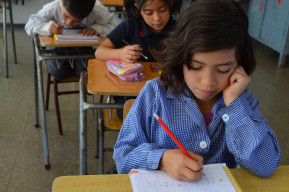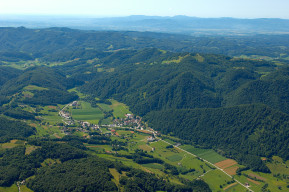Past warnings from the scientific community have now become our reality: the effects of climate change are no longer isolated emergencies, but have become the new global norm. In 2021 alone, 23.7 million people were internally displaced due to climate-related disasters (IDMC) and these numbers continue to rise each year. As a result, climate-displaced people, especially the most vulnerable and marginalised groups, have their right to education compromised by direct and indirect barriers to education.
In recent decades, South-East Europe has experienced extreme episodes of climatic disasters, followed by massive climate-induced surges in migration and mobility. With the aim to produce guidance for policy makers to ensure that the right to education for climate-affected persons does not go unfulfilled, UNESCO carried out comparative case studies in Bosnia and Herzegovina, the Republic of Moldova and Serbia.
Based on these studies, the report found that the most direct barriers to education arise from infrastructural damage to schools as well as school closures following extreme flooding linked to climate change, both of which occur in each country studied.
Moreover, the report examined these countries’ specific vulnerabilities to climate change and related mobility. The Republic of Moldova, for instance, is experiencing displacement among its agricultural and rural populations due to climate-related livelihood losses. Similarly, in Bosnia and Herzegovina and Serbia, there are high numbers of internally displaced persons, refugees, asylum seekers and migrants in unstable housing who are at high risk of future displacement as floods continue to worsen.
While there are many comprehensive policies addressing refugees and their needs, there are few dedicated solely to internally displaced persons. In a further complication, those displaced by climate change are not considered internally displaced persons according to the national legislation of any of the countries studied.
Climate-displaced persons remain politically invisible in national frameworks and, as a result, strategies to ensure the right to education of these groups are non-existent, despite the very real barriers.
The report further reveals that disaster risk reduction and disaster risk management plans focus on the impact that education can have on climate resilience, rather than inversely considering education continuity in post-disaster responses.
To address both the common barriers to education as well as the national specificities, it is imperative that all action taken be intersectoral and multi-faceted. To that end, the report provides operational policy guidance for policymakers, and UNESCO will continue to advocate for the pursuit of SDG 4, Quality Education for all, amidst climate change and climate displacement. This report is one of the several regional reports released this year and will contribute to the development of a Global Report, to be published by the end of 2023.







